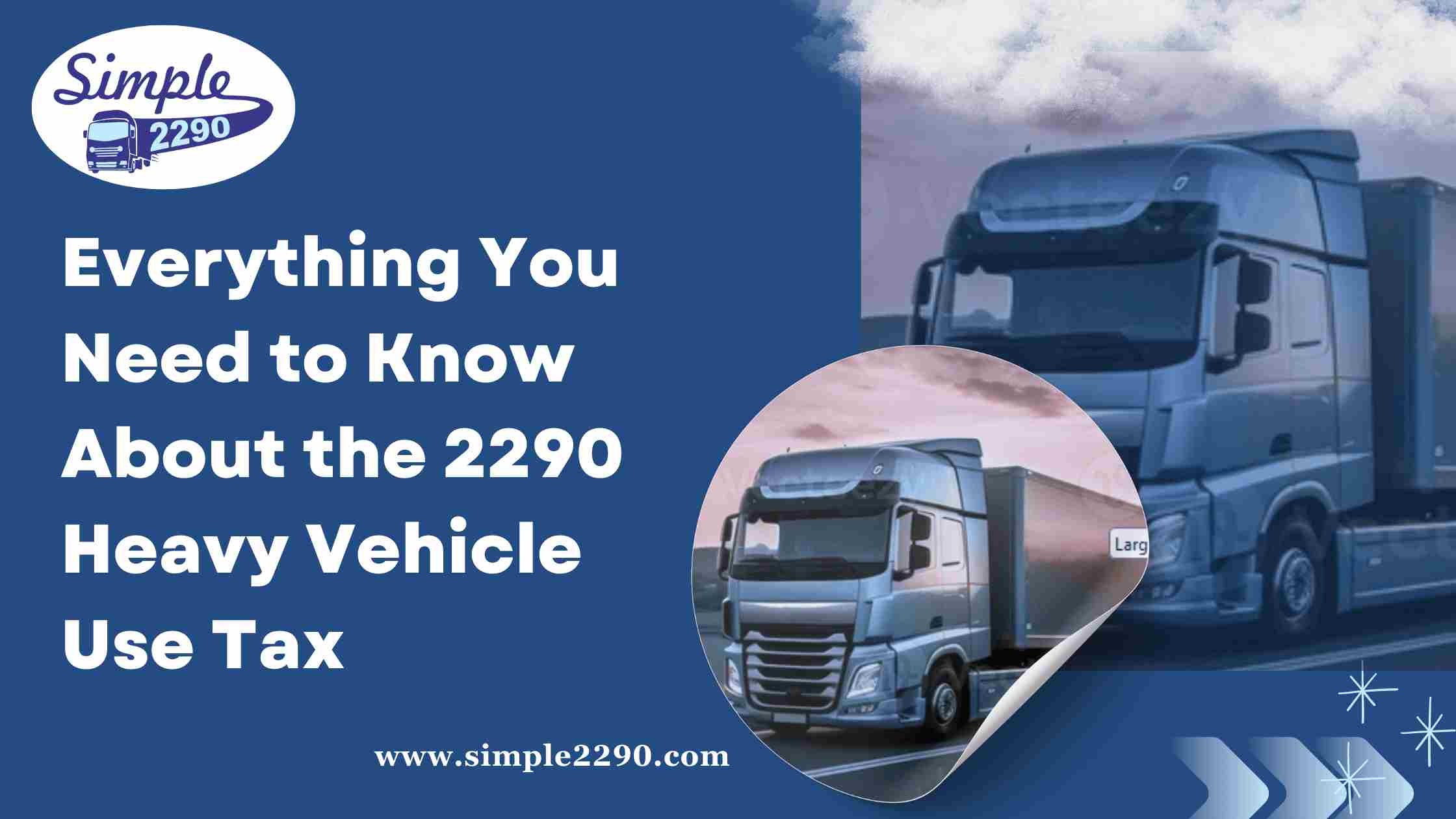09-21-2024
Everything You Need to Know About the 2290 Heavy Vehicle Use Tax
Share:
Introduction
That utilizes trucking or the capacity of heavy vehicles requires knowing their tax obligations. This includes
Heavy Vehicle Use Tax (HVUT), serves both legal as well as business needs by helping to maintain roads for your benefit. This guide will outline all you need to know in order to file and pay 2290 vehicle use tax efficiently, such as its requirements and deadlines for filing. Furthermore, this tax is of great significance for business.
What is 2290 Heavy Vehicle Use Tax?
All truckers who operate such qualifying vehicles on public roads must pay this tax to help keep our highways in tiptop shape for all.
Truckers know this tax is of vital importance, as its proceeds directly support infrastructure supporting trucking activities. Without well-kept roads and lanes, delays and safety issues could arise that impact everything from delivery schedules to operating costs.
Who should file this Form?
When you have a vehicle or another vehicle that has the weight of five thousand pounds or more, you are legally required by the IRS to fill out Form 2290. This is applicable to owners of the vehicle, fleet managers and anyone else operating in the trucking industry using trucks with heavy-duty in use.
There are however some exemptions. As an example, agricultural vehicles used for agriculture that do not exceed 7,500 miles each year have to adhere to specific regulations. The same applies to suspended vehicles suspended vehicles that don't exceed 5k miles a year may also qualify for exemption. It is essential to know these guidelines to ensure you don't commit costly mistakes.
Submission deadlines
It is important to note that the IRS has an annual tax period for vehicles carrying high weights. It runs from July 1st until the 30th June of the year that follows. For truckers, generally speaking it means the tax return needs to be filed prior to the 31st of August in each year. This is vital since it allows you about two months to ensure that your vehicle is registered in a timely manner at the time that the tax year begins.
The Steps to File the Form 2290
The procedure for filling out Form 2290 is easier than you think. You have two options: traditional paper filing or the more efficient as well as more effective electronically filed alternative. Paper filing involves sending documents to be waited for the IRS to finish the process electronically. E-filing lets you complete the entire process online and receive a quick confirmation.
You'll need some basic details:
- Employer Identification Number (EIN): Personal Social Security numbers aren't used.
- VIN (VIN): Specific for the automobile that you're registering.
- Weight of your vehicle is the factor that determines the tax amount that you have to pay.
In complete with the details you require, and all in order, e-filing is the fastest and most practical choice. Companies like
Easy2290 aid in making the process more simple by guiding customers through all the steps and making sure that you receive your schedule 1. your official IRS evidence of payment within a minute.
Understanding Schedule 1
Once you've completed the Form 2290 and repaid your HVUT, after which you'll be issued the
IRS schedule 1. It is vital because you'll require it to report your vehicle as heavy for inspection by the Department of Motor Vehicles (DMV).
For late filing, penalties are imposed
Inability to submit tax returns by the 31st of August can be expensive. The IRS can impose substantial penalties for late filing and interest may be charged on tax debts that are in the unpaid state. The IRS is very strict about the filing deadlines which is why it is vital to plan ahead. In addition, should you not fill out the proper Schedule 1 form to the DMV when you register your vehicle that you own, it could delay registration, and could even result in hindering your truck from being driven on roads until you can figure it out.
Conclusion
2290 Heavy Vehicle Usage Tax is a legal requirement for any trucking business that has large trucks on roads. By knowing the filing process and observing IRS deadlines and times Your company will not only stay in compliance and secure, but also contribute to the safety as well as maintenance on roads, which will ensure that your business is growing. The filing process may appear to be something minor however it's a task that is essential for the trucking industry.
